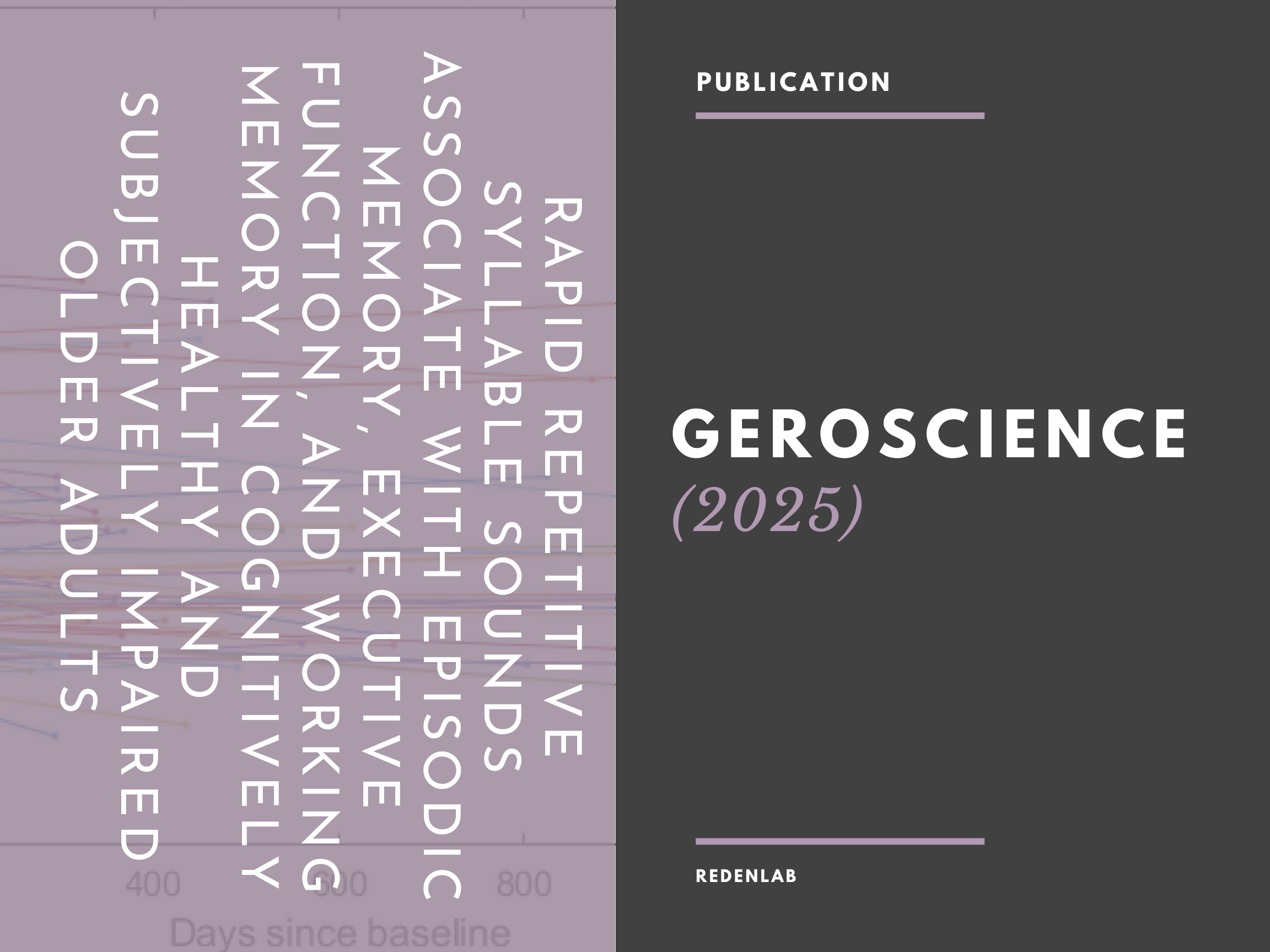Rapid repetitive syllable sounds associate with episodic memory, executive function, and working memory in cognitively healthy and subjectively impaired older adults

Could a 10-second speech test repeating “pa,” “ta,” “ka” be the key to earlier detection of Alzheimer’s risk? Our new research suggests it might.
In a study just published in GeroScience, researchers from the University of Tasmania, University of Melbourne, Redenlab, and Royal Hobart Hospital found that rapid syllable repetition can meaningfully predict cognitive performance in older adults, including those with subjective cognitive concerns.
Using advanced acoustic analysis of speech recorded remotely, the team discovered that subtle features of motor speech, such as timing, pitch and clarity were linked to memory, executive function and working memory performance. These speech-based markers provided predictive insights beyond traditional demographic or clinical factors such as age, education, anxiety or depression.
More than 1,000 community-dwelling older adults took part in the study, both with and without self-reported cognitive concerns. All participants completed a series of remote cognitive and speech tasks. Results suggest that speech features from the rapid syllable tasks significantly improved prediction models for cognitive function cross all domains studied.
This research highlights the potential of short, speech-based tasks to serve as early screening tools for Alzheimer’s disease risk. As the global population ages and the demand for early dementia screening grows, this kind of remote, speech-based assessment could help address current gaps in access and scalability while remaining cost effective.
The full study, “Rapid repetitive syllable sounds associate with episodic memory, executive function, and working memory in cognitively healthy and subjectively impaired older adults”, is available in GeroScience now.
